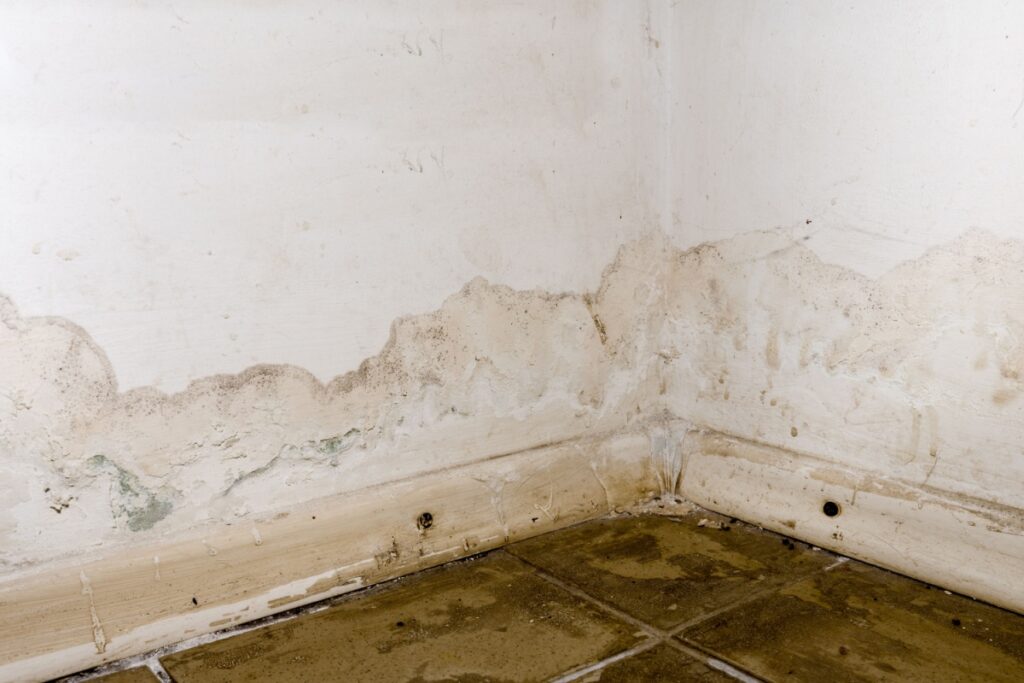“Oh no, no, NO!” Your screams echo through the house as you open the basement door. That unmistakable smell hit your nose before you even flipped on the light switch. There it was — raw sewage covering the basement floor, creeping up the bottom steps. And the worst part? This nightmare didn’t just happen overnight. The warning signs had been there for weeks. Those gurgling sounds from the basement floor drains and the slow-moving water in the kitchen sink drain all brought a sense of trouble that you somehow decided to ignore.
When your basement faces a sewage backup, know that these disasters rarely strike without warning. Your sewer system sends signals long before a major backup occurs. And the main culprits? They might surprise you.
Tree Root Invasion: Nature’s Silent Sewer Line Destroyer
Tree roots are drawn to the moisture and nutrients in your main sewer line like moths to a flame. These persistent invaders can crack through damaged sewer pipes, creating entry points that grow larger over time. Once inside, roots form thick masses that trap debris, leading to serious clogs and eventual sewer backups.
Your older sewer line pipes are especially vulnerable to this type of invasion. Clay pipes, common in homes built before 1970, have joints that tree roots can easily penetrate. As these roots grow thicker, they can completely block your sewer system, forcing sewage water back into your basement drains.
Clogged Basement Drains Can Make Your Life Miserable
Your basement floor drain backs up because of what goes down your drains every single day. Hair, soap scum, grease, and other debris build up gradually in your drain line. When multiple drains in your home contribute to a clog, you might face more than just an individual clogged basement drain. The problem can extend into your main sewer line, leading to a complete system backup. This is especially common when kitchen sink drains, and bathroom fixtures send problematic materials into your sewer system.
When the City’s Problems Become Yours
Sometimes, the issue isn’t even on your property! The city sewer system can become overwhelmed during heavy rains or due to aging infrastructure. When this happens, the excess water has nowhere to go but back through your sewer line. Your home’s connection to the city sewer line might be lower than the backup point, making your basement the first place where issues appear. During severe weather events, municipal sanitary sewers can reach capacity, turning your basement into an unwilling storage tank for backed-up sewage water.
A Failing Sump Pump
Your sump pump is way more important to your basement than you might think. Like any mechanical device, it can fail. While regular sump pump maintenance is critical, especially during rainy seasons when your pump works hardest, sometimes sump pumps just decide to give way. A non-functioning pump during a heavy storm can quickly lead to basement sewage backups.
The combination of a failing sump pump and an overwhelmed sewer system creates perfect conditions for disaster. Without this piece of equipment working properly, groundwater and sewage have free rein to invade your basement.
Old or Damaged Pipes Are a Hidden Weakness You Can’t Ignore
Your sewer line ages just like everything else in your home. Older pipes can collapse, crack, or separate at joints, creating perfect conditions for backups. Soil movement, freezing temperatures, and general wear and tear all contribute to pipe deterioration. When damaged sewer pipes go unaddressed, they can lead to recurring basement sewage backups. The problem often starts small — maybe a slight backup in your basement floor drains — but can quickly escalate to a full-scale sewage emergency.
The Important Warning Signs You Shouldn’t Ignore
Your home talks to you before a major backup occurs. Watch for multiple drains clogging at once, gurgling sounds in pipes, or water backing up in strange places (like toilet water bubbling when you run the washing machine). Bad odors from your basement drains and slow-draining fixtures throughout your house are red flags that shouldn’t be ignored. To avoid clogged drains altogether, consider regular sewer line inspections. Professional plumbers can spot potential issues before they become emergencies. These serve as the best type of warning sign because you’ll likely catch things before they become a serious issue.
Find Your Partners in Plumbing
Friend’s Plumbing has seen our share of basement nightmares, and we know exactly how to help Tampa Bay, FL, residents overcome these challenges. Our team tackles everything from simple drain line clogs to complete sewer line repairs, and we’ll use our video drain inspections to find out what’s really going on in your sewage drains. Best of all, we’re here 24/7 for emergency plumbing problems, meaning you have ZERO excuse for ignoring that clogged sewage drain or gurgling pipe.
If you spot any warning signs or need help with your sewer system, give us a call. We’ll be there to help!




